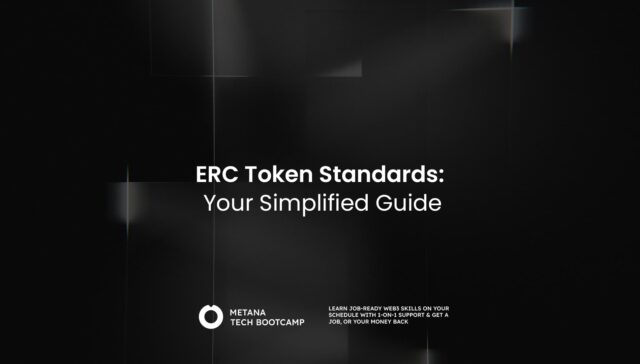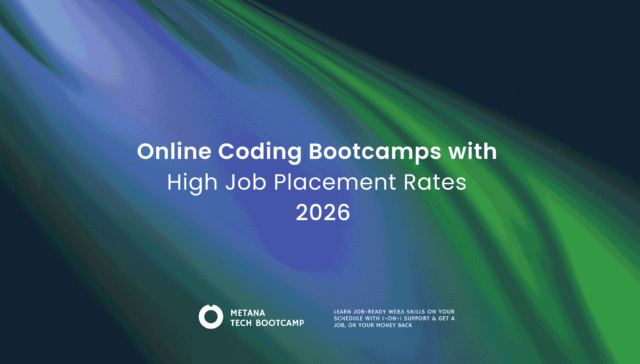Blockchain has changed many industries with decentralized, transparent and secure data storage and transaction systems. It’s spread from finance and supply chains to healthcare and beyond and it’s growing. If you want to get into this technology, learning how to conduct a research on blockchain is a good starting point. Understanding the principles, the applications and the latest innovations in blockchain will give you a solid foundation to get started.
This article will guide you through the process of researching blockchain technology, starting with the basics and advancing to more complex topics. By following the steps outlined in this guide, you’ll be well-equipped to conduct thorough research and make informed, insightful decisions.
Understanding Blockchain Technology

Before you get started with conducting a meaningful research on blockchain, it’s important to understand the basics of the technology.
Blockchain is a distributed ledger system that allows data to be securely stored across multiple computers. Each block in the chain contains a record of transactions, and once added to the blockchain, the information becomes immutable and transparent.
Following are some key features of the blockchain.
- Decentralization
- Blockchain operates on a network of nodes that work together to verify and store data. This removes the need for a central authority, such as a bank or government.
- Transparency
- Every transaction on the blockchain is visible to all participants in the network, making it an open and transparent system.
- Security
- Blockchain uses cryptographic techniques to make sure that once data is added, it cannot be altered, which enables the integrity and trustworthiness of the information.
- Immutability
- Once a transaction is confirmed, it cannot be changed or deleted, which makes blockchain particularly valuable in scenarios requiring auditable records.
Why Research Blockchain?

Blockchain technology is still relatively new, and its applications are constantly evolving. Conducting thorough research on blockchain can provide insights into how it can disrupt industries, optimize processes, or create new business models. Whether you’re conducting academic research, exploring investment opportunities, or developing blockchain-based applications, research helps you stay informed about the latest trends, best practices, and challenges. Research is also necessary to assess the scalability, security, and regulatory aspects of blockchain, which are some important concerns for developers, policymakers, and businesses alike.
Steps on How to Conduct a Research on Blockchain

Conducting research on blockchain involves a systematic approach to exploring its various components, applications, and implications. Whether you’re investigating blockchain from a technical, business, or regulatory perspective, following a structured process will help you gather meaningful insights.
We will outline the key steps on how to conduct research on blockchain, from defining your research question to analyzing case studies and drawing conclusions. These steps will make sure you have a comprehensive understanding of the topic and can effectively contribute to the field.
1. Defining Your Research Question
The first step in conducting a research on blockchain is identifying a specific research question or problem to solve. Blockchain is a vast field, so focusing on a niche area of study will make your research more manageable and impactful. Following are some examples of research questions you could consider.
- How can blockchain improve supply chain transparency?
- What are the security risks associated with decentralized finance platforms?
- How does blockchain impact data privacy in healthcare?
A clear and concise research question will guide the direction of your research and help you stay focused. Consider the scope of your research, whether you want to explore technical aspects, such as blockchain algorithms, or its real-world applications.
2. Gathering Background Information
Before you dive deep into blockchain research, it’s important to build a basic understanding of the technology. Read introductory materials, watch videos, and explore online courses. Websites like Blockchain.com, CoinDesk, and Ethereum.org offer excellent beginner-friendly resources.
To start with blockchain research, it’s important to understand key concepts like decentralization, cryptography, smart contracts, and consensus mechanisms like Proof of Work (PoW) and Proof of Stake (PoS). A solid understanding of these basics will form the foundation for exploring more advanced topics in blockchain technology.
3. Identifying Key Blockchain Resources
To conduct successful blockchain research, you’ll need access to reliable and up-to-date resources. Following are some of them.
- Academic Journals
- Platforms like Google Scholar, IEEE Xplore, and SpringerLink provide access to in-depth research on blockchain topics, offering insights into the latest advancements and theoretical underpinnings in the field.
- Books
- Comprehensive resources such as Mastering Bitcoin by Andreas M. Antonopoulos explain blockchain fundamentals, while Blockchain Revolution by Don Tapscott explores its potential impact across industries. Reading these books will help you on your research.
- Online Bootcamps and Courses
- Learning platforms like Metana, Coursera, Udemy, and edX provide expert-taught bootcampss and courses on blockchain, catering to beginners and advanced learners with hands-on projects and certifications.
- Industry Reports
- Reports from PwC, Deloitte, and IBM include market analyses, case studies, and insights into blockchain applications, helping researchers understand real-world implementations and future trends.
By utilizing these resources, you will be able to gather both theoretical and practical insights into blockchain technology.
4. Reviewing Academic and Industry Literature
When researching blockchain, it’s important to review both academic and industry literature. Academic research provides theoretical frameworks and deep insights into the workings of blockchain technology, while industry reports help you understand how the technology is being applied in real-world scenarios.
Start by reviewing the most recent blockchain research papers and articles published in journals. Look for case studies, success stories, and challenges faced by blockchain adopters.
You should also examine white papers released by blockchain projects and initiatives. These documents provide detailed descriptions of how blockchain solutions are being built and implemented in various sectors.
5. Conducting Case Studies
Blockchain research is not just about understanding theoretical concepts, it’s also about examining how blockchain is used in practice. One way to do this is by conducting case studies on existing blockchain projects or implementations. Case studies provide insights into the challenges, solutions, and real-world impacts of blockchain technology.
6. Experimenting and Prototyping
To gain a deeper understanding of how blockchain works, consider creating your own blockchain prototype or experiment with existing blockchain platforms. Blockchain development platforms like Ethereum, Hyperledger, and Solana offer environments where developers can build decentralized applications and smart contracts.
Hands-on experimentation will expand your knowledge of how blockchain transactions occur, how consensus mechanisms work, and how blockchain networks are maintained.
Challenges in Blockchain Research

Blockchain technology is a continuously evolving field with immense potential, but researching this domain comes with a lot of challenges. Understanding these challenges is important for conducting meaningful research and proposing effective solutions. Below, we will explore the key obstacles faced in blockchain research and discuss why addressing these challenges is needed for the advancement of the technology.
- Scalability Issues
- As blockchain networks expand, their ability to efficiently process a growing number of transactions can become a bottleneck, potentially leading to slower transaction speeds and higher fees. Addressing scalability is important to make sure that blockchain networks can handle increasing demand and continue to support large-scale applications and real-world use cases.
- Regulatory Concerns
- The decentralized nature of blockchain makes it difficult for regulators to establish clear guidelines for its use. Without proper regulation, blockchain networks may become vulnerable to misuse, such as money laundering or fraud. It’s important to address regulatory concerns to create a framework that balances innovation with protection, enabling trust and ensuring blockchain adoption by businesses and governments.
- Security Risks
- While blockchain is considered secure, threats and vulnerabilities in smart contracts still pose risks. These weaknesses can undermine the integrity of transactions and the overall trust in blockchain systems. Tackling these security risks is necessary to protect users, investors, and the broader blockchain ecosystem from malicious activities.
- Interoperability
- Many blockchain networks operate in silos, making it challenging to share data and assets across different platforms. Without interoperability, the full potential of blockchain technology remains limited. Addressing this issue will allow blockchain networks to communicate more efficiently, enabling seamless cross-chain transactions and broadening the technology’s adoption across various industries.
Tools and Resources for Blockchain Research

Conducting an effective research on blockchain technology requires a variety of tools and resources to help you explore the space with accuracy and efficiency. Below are some essential tools and resources that can help you expand your knowledge on blockchain, enabling you to gain valuable insights and make well-informed decisions.
| Blockchain Explorers | Platforms for viewing transaction details, blocks, and network data on blockchain systems. |
| Development Environments | Tools for creating and testing blockchain applications, such as smart contracts and decentralized apps. |
| Academic Research Platforms | Databases that offers access to scholarly articles, journals, and conference papers on blockchain topics. |
| Blockchain Websites | Websites providing blockchain news, use cases, and educational content. |
| Community Forums | Online communities for discussing blockchain topics and collaborating on open-source projects. |
| Data Analysis Platforms | Platforms for analyzing on-chain data and creating dashboards for blockchain insights. |
Conclusion
Conducting research on blockchain requires a balanced approach that combines theoretical understanding, hands-on experimentation, and critical analysis. By following the steps outlined above, you’ll be able to build a well-rounded and in-depth understanding of blockchain technology, from its basics to its real-world applications.
As blockchain continues to evolve and disrupt industries like finance, healthcare, and supply chain management, engaging in research on this transformative technology will not only expand your knowledge but also place you at the forefront of the digital revolution. Embracing this cutting-edge field will open up opportunities to contribute to its growth and innovation in the years to come.
FAQs
What are some good resources for blockchain research?
- Good resources for blockchain research include academic journals (IEEE Xplore, Springer), blockchain-specific websites (Ethereum.org, Blockchain.com), and industry reports (PwC, Deloitte).
Can I conduct blockchain research without coding experience?
- Yes, it’s possible to conduct blockchain research without coding experience
What are the biggest challenges in blockchain research?
- Some of the biggest challenges in blockchain research include scalability, security vulnerabilities, regulatory uncertainty, and interoperability between different blockchain networks.







